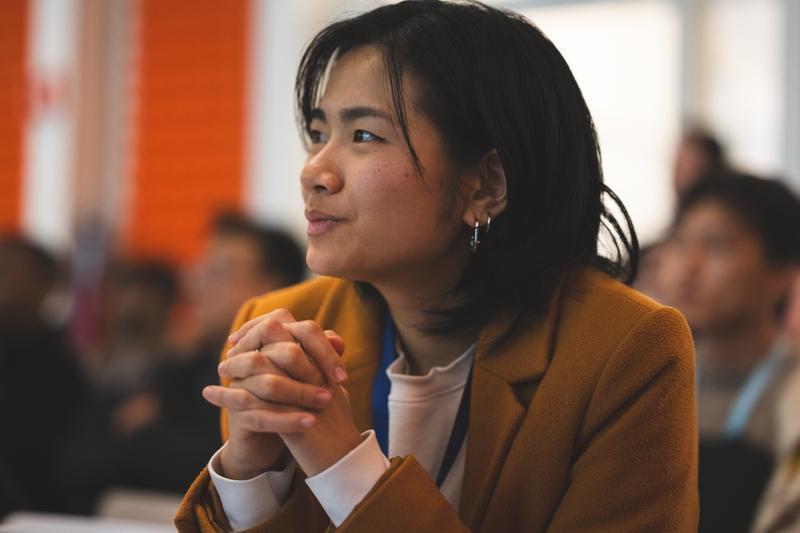Kristy Gao had just arrived from Canada when she got into a grave accident. It threw her into the maze of American healthcare paperwork, a system so complicated that she waited six months for follow-up care. Most patients would simply end up frustrated with a big bill, but not Kristy. She saw a way around it.
“When I went to the ER, I kept asking a ton of questions like, ‘Is this covered by insurance? Am I screwed?'” Gao remembers the stressful visit that later sparked her to create Cenote.
Now, less than two years after that ER trip, Kristy Gao’s company has received $500,000 from Y Combinator and handles thousands of patient referrals each month, tackling an issue that costs American healthcare over $150 billion yearly. Her path from worried patient to startup founder shows how personal problems and technical know-how can lead to meaningful solutions.
The Crisis in American Healthcare
Behind the big healthcare debates about insurance, drug costs, and doctor shortages lies a less obvious but equally serious problem: paperwork waste. For every doctor in America, 4.3 staff members handle forms, process referrals, and deal with insurance approvals.
In 2025, when digital technology runs trillion-dollar financial systems and AI writes legal documents, many medical clinics still get patient referrals by fax machine, a technology that peaked around the time of the first Gulf War.
“Our goal is to automate everything from that first fax to scheduling the patient. By straightening out the data, patients will get seen faster and providers can deliver services faster and get paid promptly,” Kristy Gao explains.
Between 40 and 60 percent of specialist referrals simply vanish due to paperwork bottlenecks. Patients who need care but never receive it because their forms get lost. Those who do make it through often wait weeks or months for appointments.
From Computer Science to Healthcare Automation
Kristy Gao’s background makes her uniquely suited to tackle this problem. Born to Chinese immigrant parents in Guelph, Ontario, Gao loved technology early on. At the University of Waterloo, she earned a computer science degree while leading projects for UW Blueprint, a group creating technology for the public good. There, she led a team developing web applications to help coordinate volunteers who translate children’s stories, replacing manual email-and-Word workflows with automated systems.
“Currently, they process their translations through email and Word documents, so we’re building a platform to streamline that,” she said about her project with Planet Read.
This early work with automating manual tasks proved valuable later on. After graduating in 2022, Kristy Gao joined Watershed Climate as a software engineer, where she built carbon measurement engines and NAICS code mapping systems that cut data entry time in half. The job taught her how to work within heavily regulated industries, knowledge that became crucial when dealing with healthcare’s complex rules.
The Book Club That Changed Healthcare
Good ideas often come from unexpected places. Kristy Gao’s path to starting Cenote began with a book club, a social group she created after moving to San Francisco to meet people in her new city.
Through this literary circle, she met her future co-founders: Kofi Ansong, a former software engineer at Promise (YC W18), and Ajani Smith-Washington, who spent 2.5 years as an early-stage venture capitalist at Base10. United by their shared frustration with healthcare paperwork, the trio spent months talking to clinics, uncovering just how bad the administrative burden was.
Cenote’s team and idea caught Y Combinator’s attention, which accepted it into its Winter 2025 group with $500,000 in seed money. Since January, Cenote has experienced 50% week-over-week revenue growth. By March 2025, Cenote had signed numerous clients, including a sleep clinic managing 75,000 patients.
The Technical Architecture Behind the Solution
Cenote’s system starts by scanning referrals with optical character recognition (OCR), which turns faxed or scanned papers into digital text. AI models then find important patient details and insurance data, checking it against each clinic’s needs.
For insurance verification, usually the slowest part of the process, Cenote uses AI “callers” that work with insurance company websites, automating approval requests. This cuts a process that normally takes days down to minutes. A dashboard lets clinic staff check flagged issues, ensuring accuracy before scheduling.
The Global Healthcare Situation
Cenote’s approach mirrors successful healthcare administration solutions in other countries. Estonia’s e-Health system, for example, has digitized 99 percent of medical data and prescriptions, creating a smooth experience for patients and doctors alike. Singapore’s National Electronic Health Record system similarly connects healthcare facilities nationwide, allowing for secure information sharing that reduces duplication and paperwork.
Clinics using Cenote report a 70 percent drop in referral processing time, greatly reducing administrative staff needs. Cenote plans to add automation for insurance appeals and patient onboarding, using AI to draft insurance rebuttals and pre-fill intake forms. Partnerships with telehealth platforms are also being explored to streamline referrals from virtual doctor visits.
Beyond paperwork tasks, Cenote aims to gather referral data for analysis, spotting trends like regional specialist shortages. This fits a bigger move toward value-based care, where efficiency directly affects payment. Kristy Gao’s journey from frustrated patient to healthcare entrepreneur reveals that sometimes the best solutions come from those who have experienced a problem firsthand.





























